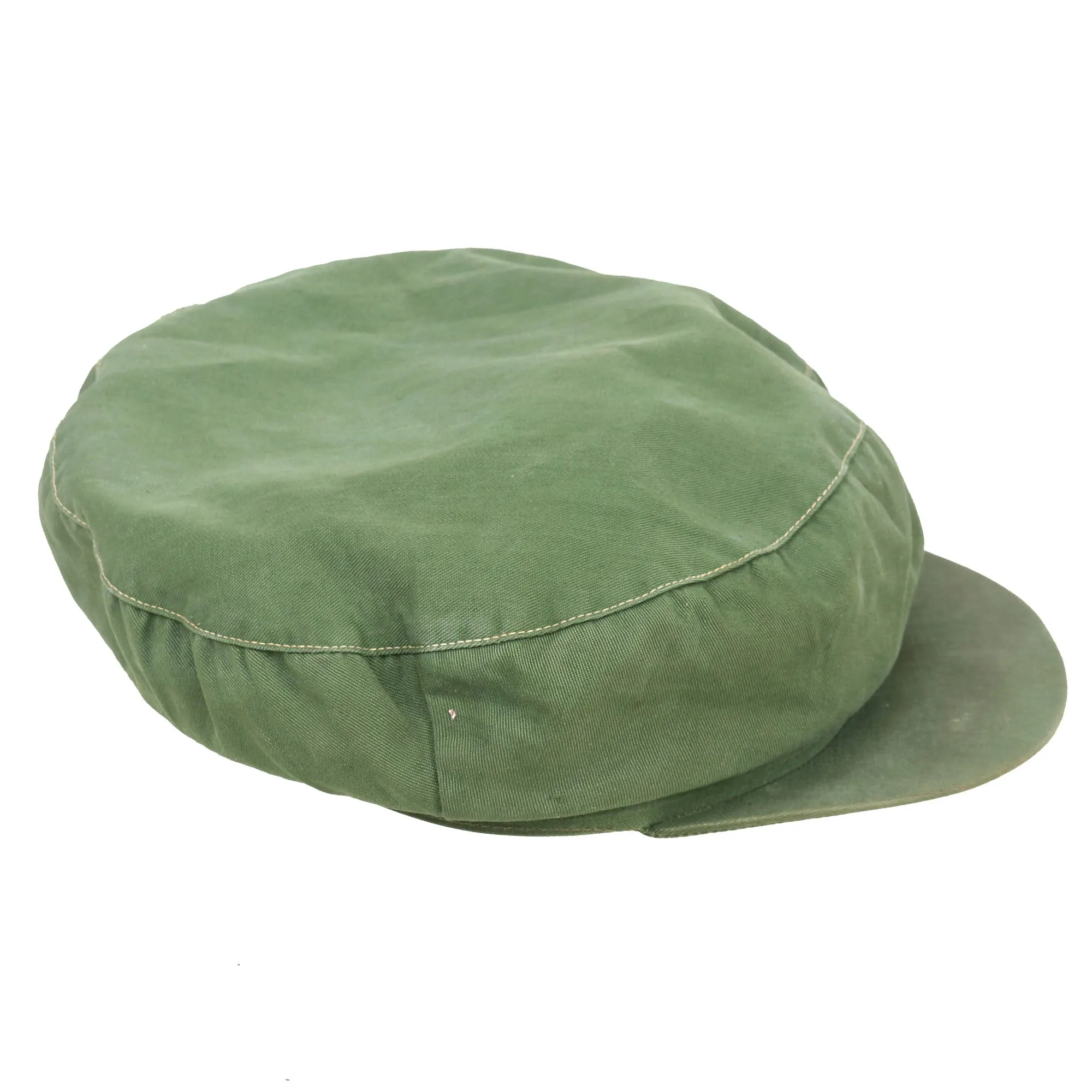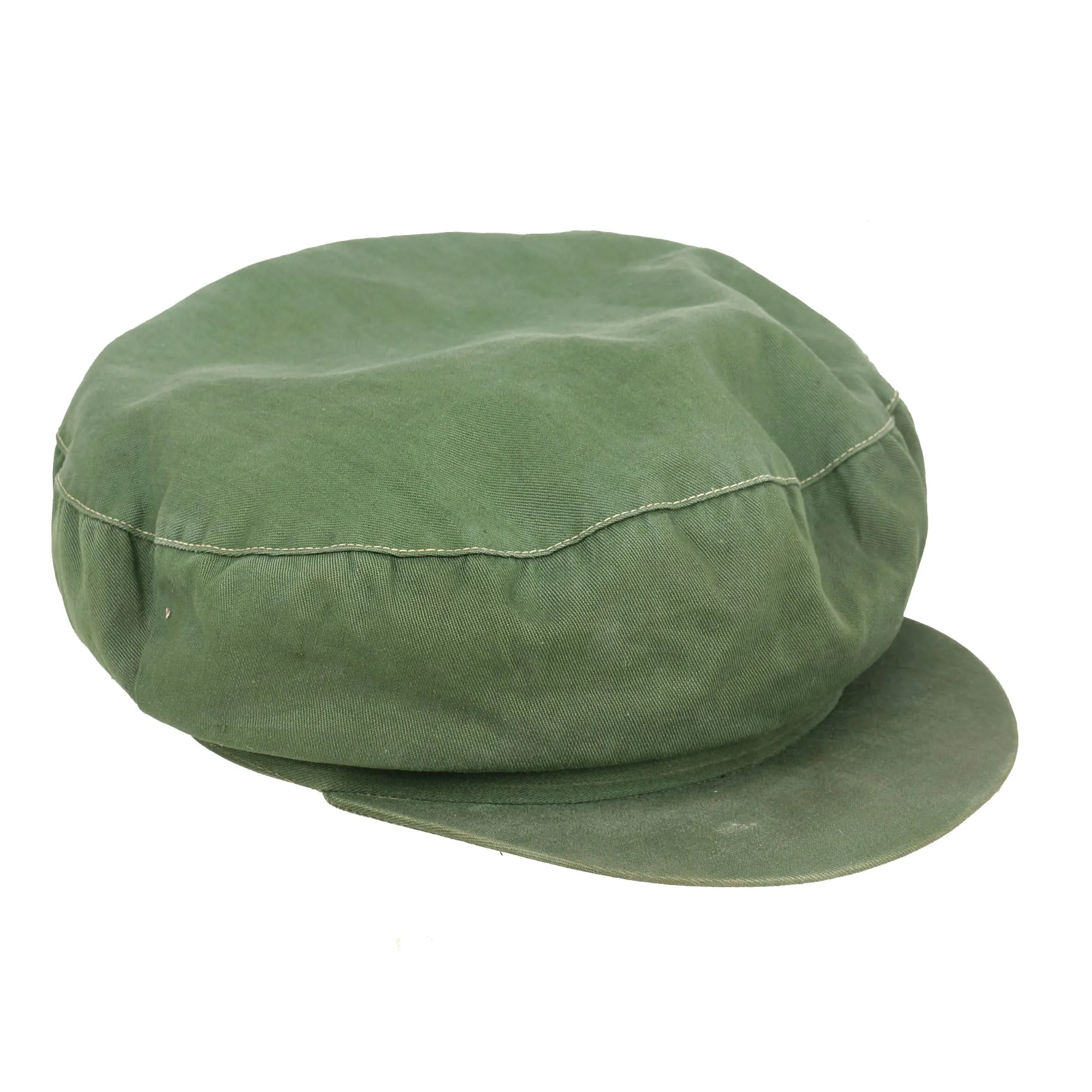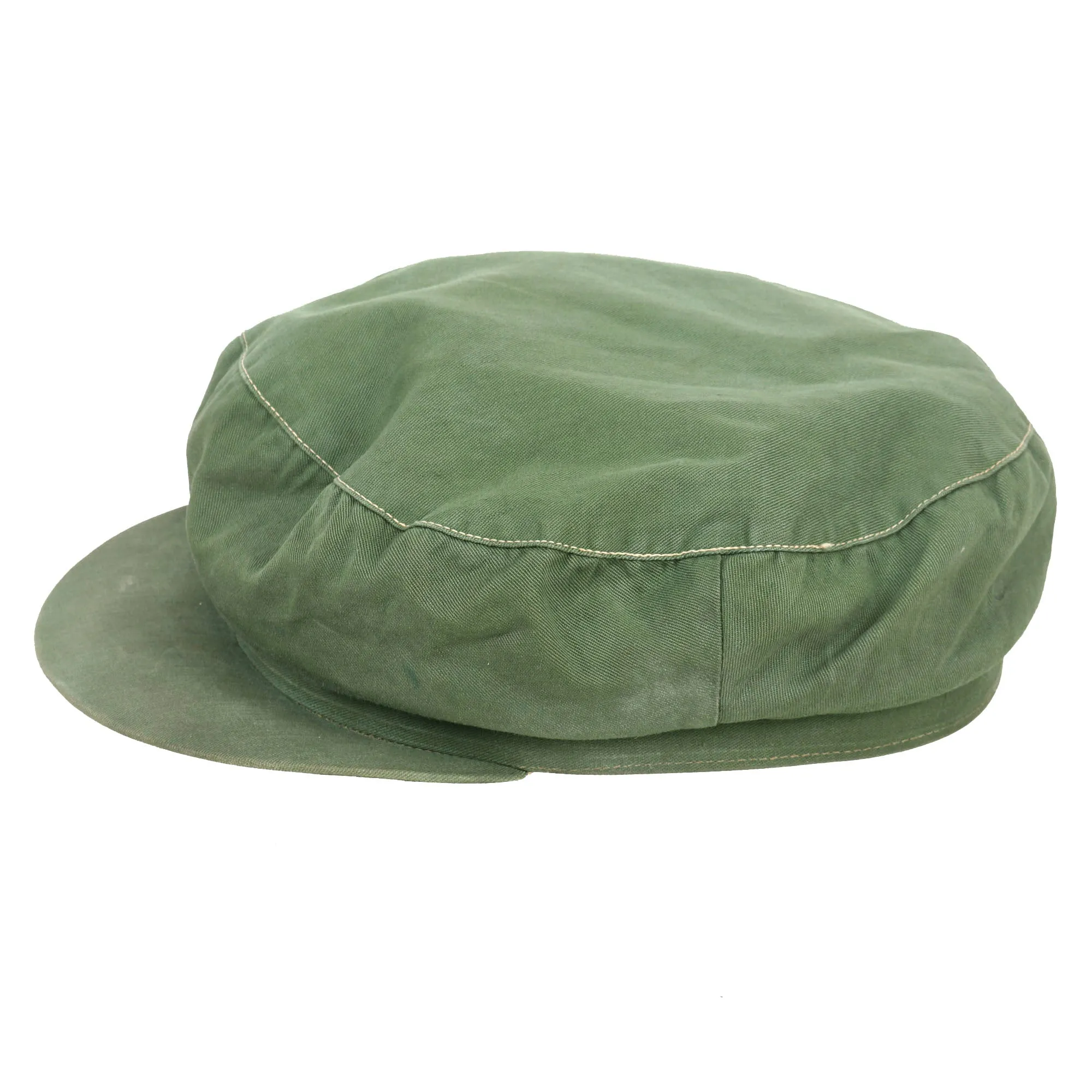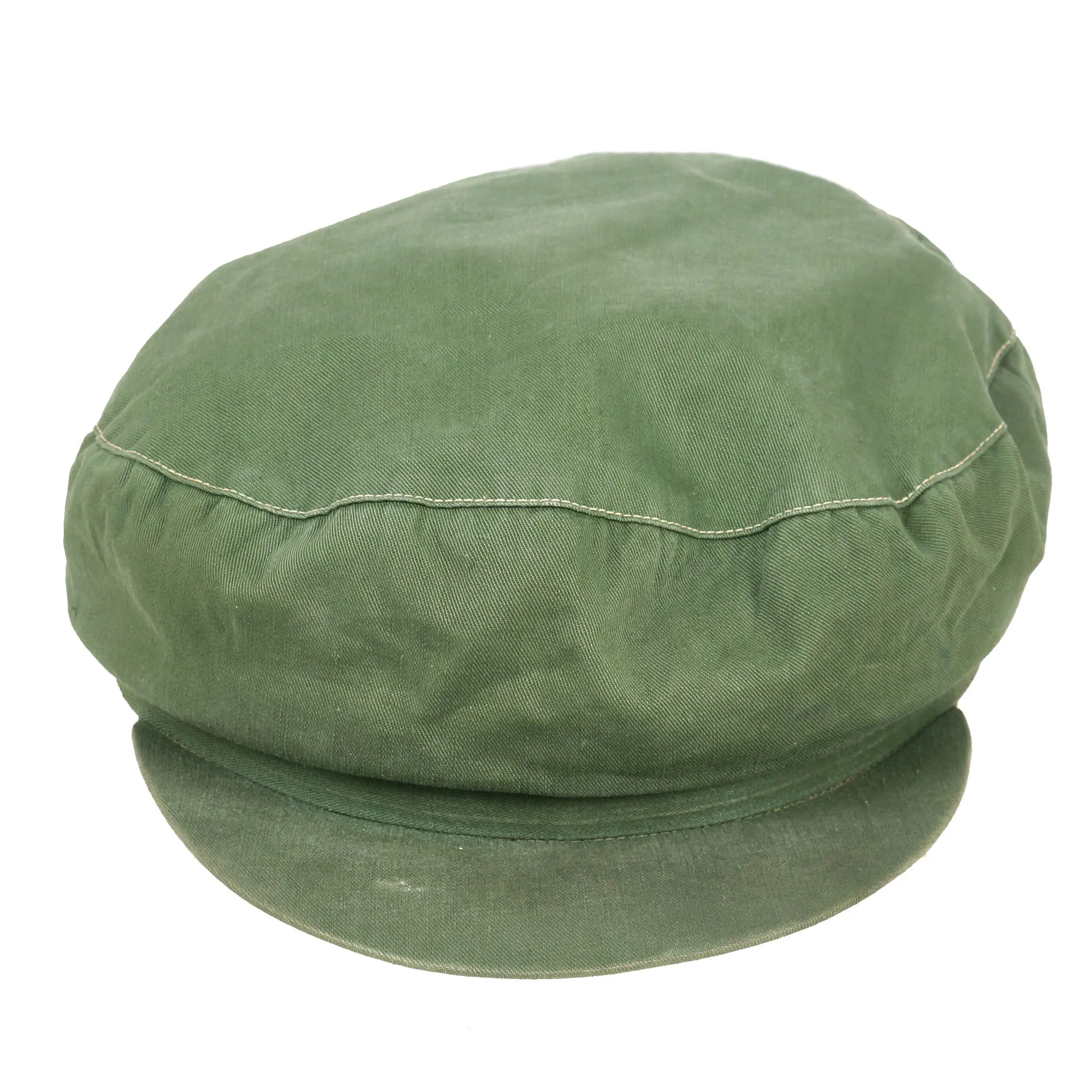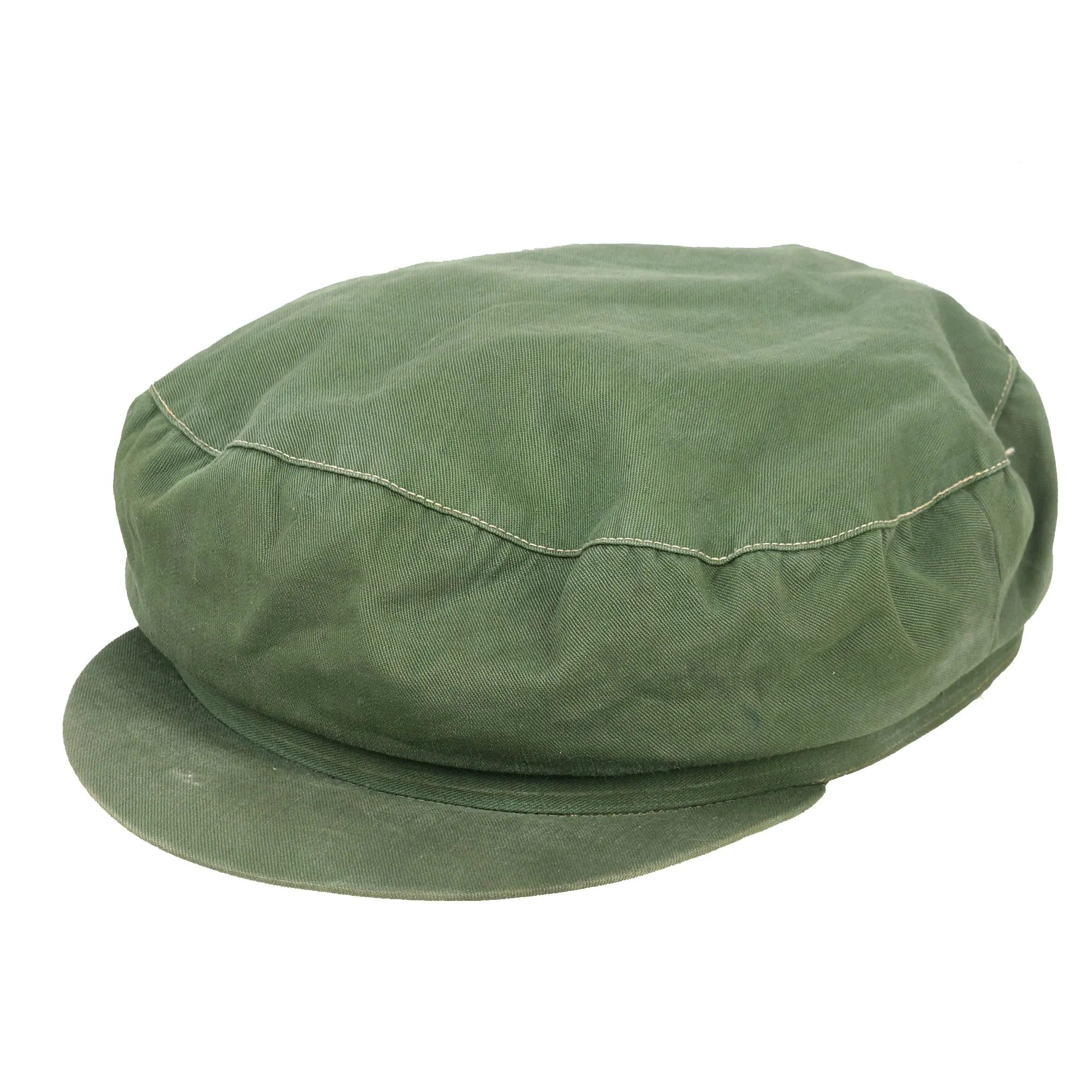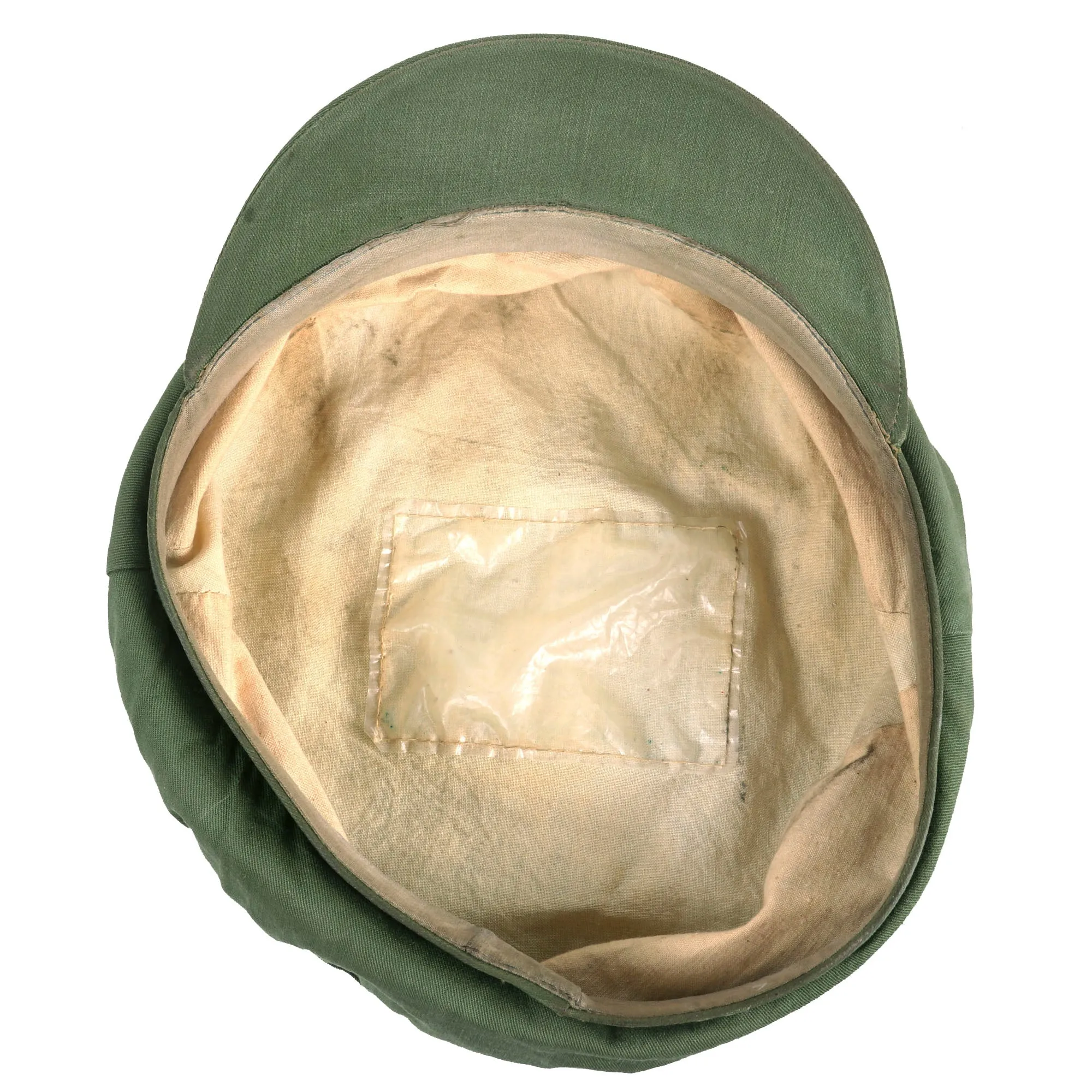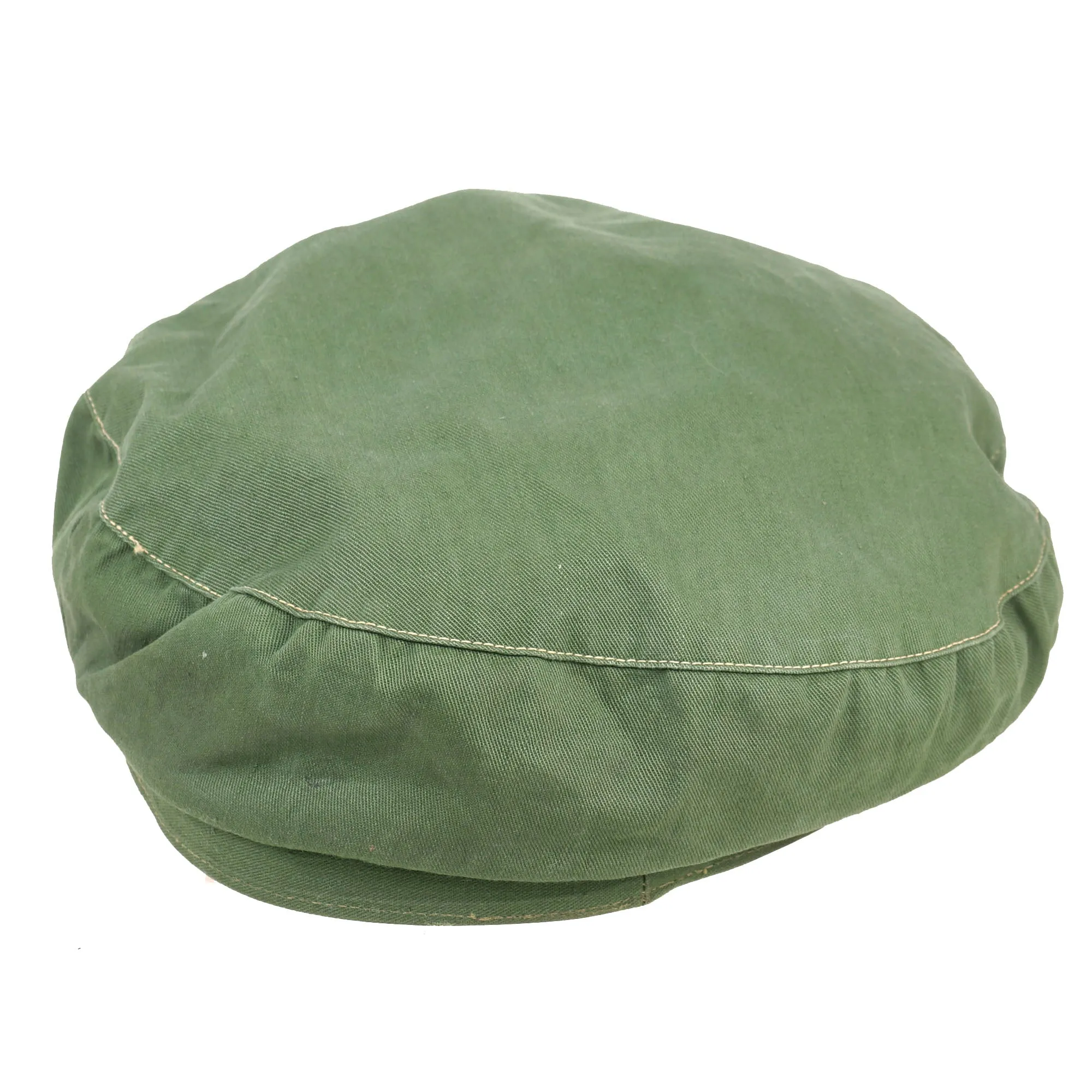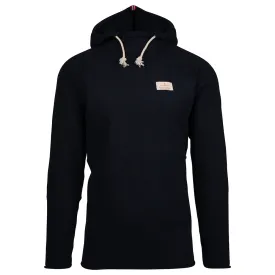Original Item. Only One Available. This is a seldom seen cotton field cap worn by a soldier of the Chinese People’s Volunteer Army during the Korean War. This example was likely a private purchase given the plastic crown sweat shield on the interior. The cap is in amazing condition for its age with no damage to the stitching or otherwise. Size is approximately 57 cm (US 7 1/8).
This cap doesn’t bear any markings, but there may have originally been a tag in the plastic crown sweat shield. The cap retains its solid green color with obvious wear from service use.
A very rare piece of Korean War headgear ready for display in your collection!
The People's Volunteer Army (PVA), officially the Chinese People's Volunteers (CPV), was the armed expeditionary forces deployed by the People's Republic of China during the Korean War. Although all units in the PVA were actually transferred from the People's Liberation Army under the orders of Chairman Mao Zedong, the PVA was separately constituted in order to prevent an official war with the United States. The PVA entered Korea on 19 October 1950 and completely withdrew by October 1958. The nominal commander and political commissar of the PVA was Peng Dehuai before the ceasefire agreement in 1953, although both Chen Geng and Deng Hua served as the acting commander and commissar after April 1952 following Peng's illness. The initial (25 October – 5 November 1950) units in the PVA included 38th, 39th, 40th, 42nd, 50th, 66th Corps; totalling 250,000 men. About 3 million Chinese civilian and military personnel had served in Korea throughout the war.
During the Korean War, the Chinese People’s Volunteer Army (PVA) sent two million soldiers to Korea. The PVA had a limited number of heavy weapons such as artillery, very few anti-aircraft guns, and no armoured vehicles. Compared to the UN forces it faced, the Chinese army was weak. A PVA Infantry Division numbered 10,000 soldiers.
The initial 35 Divisions committed to Korea were well equipped but later units had to send men into battle armed only with grenades. Nevertheless, the Chinese soldier was a determined and formidable enemy. The average Chinese soldier was physically tough and committed to his cause. The officers were competent and experienced. Chinese tactics relied on overwhelming the enemy with numbers. The Chinese frequently launched human wave assaults against their foes, considering that losses were secondary to achieving battlefield success.




